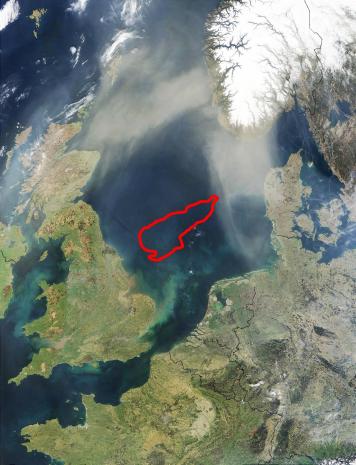
Member States have an obligation to ensure that fishing activities do not adversely impact the environment, especially where marine Natura 2000 sites have been designated.
Nevertheless, establishing measures to minimise impacts on such sites has been a slow and tortuous process. Recently, we expressed our support for, what we believed at the time, a step forward in implementing fishing rules in the Dogger Bank, the North Sea’s largest sandbank in which three Member States – Germany, the Netherlands and the UK – have designated adjoining Natura 2000 areas.
Although NGOs still considered it the bare minimum, extensive stakeholder discussion initially resulted in measures that could have ensured the protection of about one-third of the whole sandbank from mobile bottom fishing gear and still allowed for fishing as a viable economic activity.
The proposal notably included a more ambitious 50% of the German Natura 2000 site to be fully protected from bottom gears.
However, a late compromise resulted in another bottom gear – seine fishing – being admitted to most of the proposed closures, bringing the total area protected down to a measly 5%. This is R.I.D.I.C.U.L.O.U.S.
This sandbank community is highly productive: it supports a diverse range of marine wildlife and is a major feeding ground for beloved seabirds such as the Atlantic Puffin, as well as harbour porpoises, minke whales and seals.
The sandbank itself features a mollusc – the ocean quahog – that is the longest-lived animal known on the planet and key to the degraded seabed community the Natura 2000 measures were meant to restore.
Member States are now in the midst of drafting a joint fisheries management recommendations that they will present to the European Commission. However, if the proposal stays as meaningless as it is to the protection of the sandbank community because politics have put economic interests before nature conservation, this will discredit the whole Natura 2000 process.
Experts and stakeholders have spent years contributing to this process, and we very much hope this effort is not shattered.
Our ecosystems need effective management and an ecologically coherent network of marine protected areas. Our governments must stand up and establish appropriate rules instead of continuing to generate ‘paper parks’.
NGOs in Germany have already started a court case against their government on this. How many more legal challenges will be needed before governments realise that effective management of special places like the Dogger Bank is central to our environment, our economy, and our livelihoods?
Bruna Campos, EU Marine and Fisheries Policy Officer at BirdLife Europe
Euan Dunn, Principal Marine Advisor at RSPB
